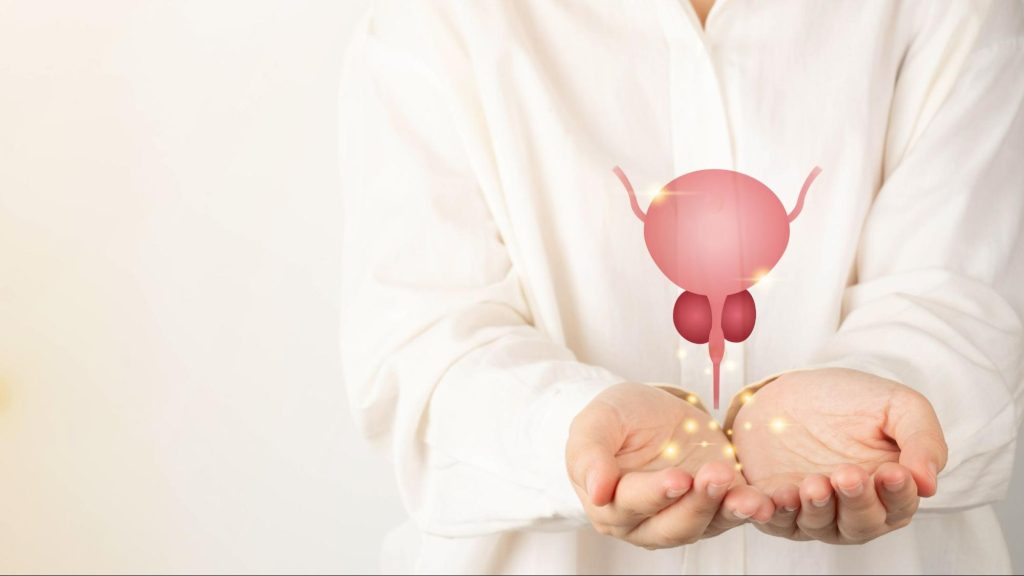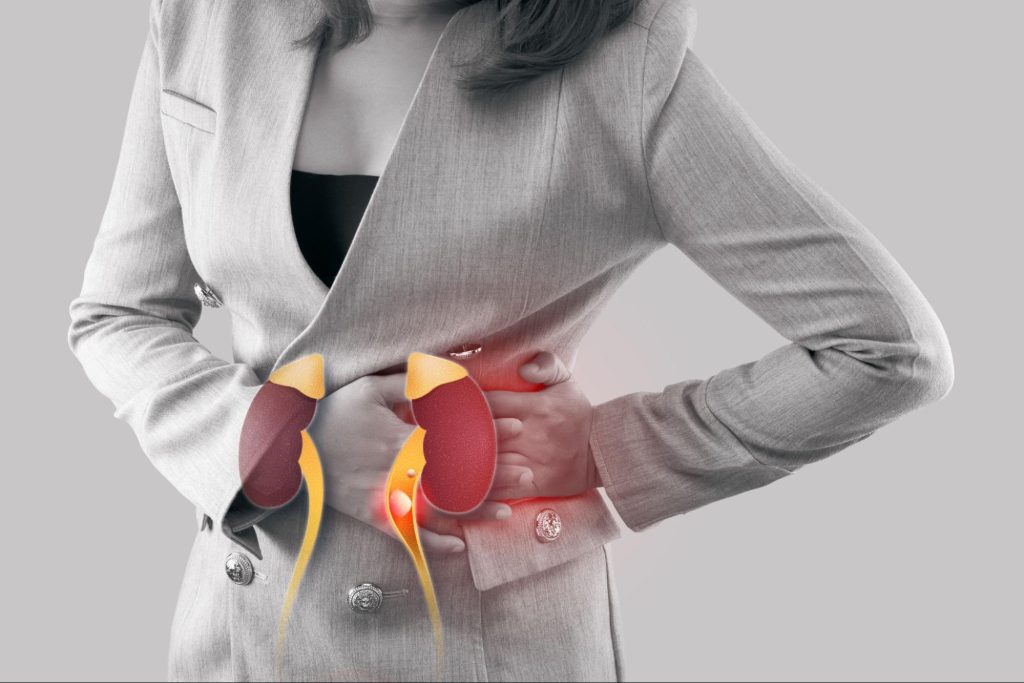Kidney Stones / Urology
How to Manage Kidney Stones at Home: Effective Strategies and Natural Remedies

by admin
9th August 2023
6 minutes read
Introduction
Kidney stones, also known as renal stones or nephrolithiasis, are hard mineral and salt deposits that form in the kidneys. These stones can cause severe pain and discomfort when they block the urinary tract. While medical intervention may be necessary in some cases, mild kidney stones can often be managed at home through lifestyle changes, natural remedies, and proper self-care. In this comprehensive guide, we will explore effective strategies and home remedies to manage kidney stones, providing valuable insights into kidney stone treatment, diet, and preventive measures.
Understanding Kidney Stones and Their Causes
Kidney stones are solid masses that form in the kidneys when certain substances in the urine, such as calcium, oxalate, and uric acid, become concentrated and crystallize. The size of kidney stones can vary, ranging from tiny grains to larger, more painful stones.
Common causes of kidney stone formation include:
- Dehydration: Insufficient fluid intake can lead to concentrated urine, promoting stone formation.
- Dietary Factors: Consuming a diet high in sodium, animal protein, and oxalate-rich foods (such as spinach, beets, nuts, and chocolate) can contribute to stone development.
- Family History: A family history of kidney stones increases the risk of developing them.
- Certain Medical Conditions: Conditions like urinary tract infections, hyperparathyroidism, and Crohn’s disease can increase the risk of kidney stone formation.
Recognizing Kidney Stone Symptoms

The symptoms of kidney stones can vary depending on their size and location within the urinary tract. Common symptoms include:
- Severe Pain: Intense pain in the back, side, lower abdomen, or groin is a hallmark symptom of kidney stones. The pain may come in waves and may be accompanied by nausea and vomiting.
- Frequent Urination: Increased urge to urinate more often than usual.
- Blood in Urine: Hematuria or the presence of blood in the urine may occur due to kidney stone irritation of the urinary tract.
- Cloudy or Foul-Smelling Urine: Kidney stones can lead to changes in urine color and odor.
Managing Kidney Stones at Home: Effective Strategies
While severe cases may require medical intervention, home management of kidney stones is suitable for small stones that can pass on their own. Here are some effective strategies:
1. Stay Hydrated: Drink plenty of water throughout the day to keep urine dilute and help flush out minerals and salts that contribute to stone formation.
2. Follow a Kidney-Friendly Diet: Adopt a diet that promotes kidney health and reduces the risk of stone formation. Include foods rich in calcium, such as dairy products, and limit sodium, animal protein, and oxalate-rich foods.
3. Manage Pain with Warm Compresses: Apply warm compresses to the affected area to help alleviate pain and discomfort.
4. Over-the-Counter Pain Relief: Over-the-counter pain relievers like ibuprofen or acetaminophen can help manage pain. However, consult a healthcare professional before using any medication.
Kidney Stone Diet: Foods to Include and Avoid
A kidney stone-friendly diet plays a crucial role in preventing stone formation and managing existing stones. Here are some dietary guidelines:
1. Have More Water: Aim to drink at least 8-10 glasses of water per day to maintain adequate hydration.
2. Consume Calcium-Rich Foods: Consume foods rich in calcium, as calcium binds to oxalate in the intestines, preventing its absorption into the bloodstream and reducing the risk of oxalate-based stones. Good sources of dietary calcium include low-fat dairy products, leafy greens, and fortified plant-based milk.
3. Limit Sodium Intake: High sodium intake can lead to increased calcium excretion in the urine, contributing to stone formation. Avoid processed and salty foods.
4. Moderation with Animal Protein: Excessive consumption of animal protein, particularly red meat, can increase uric acid excretion and raise the risk of stone formation. Balance your protein intake with plant-based sources like legumes, lentils, and tofu.
5. Oxalate-Rich Foods: While oxalate is essential for normal bodily functions, excessive consumption of high-oxalate foods can contribute to certain types of kidney stones. Limit intake of spinach, beets, nuts, chocolate, and rhubarb.
6. Limit Caffeine and Alcohol: Both caffeine and alcohol can lead to dehydration, which can increase the risk of stone formation.
Also Read : Ureteroscopic Lithotripsy (URSL) surgery
Natural Remedies for Kidney Stone Management
Several natural remedies can complement home care for kidney stones. However, it’s essential to consult a healthcare professional before using any herbal or alternative remedies. Some natural remedies include:
1. Lemon Juice: Lemon juice is rich in citrate, which may help prevent stone formation. Mix freshly squeezed lemon juice with water and consume regularly.
2. Apple Cider Vinegar: Some believe that apple cider vinegar can help dissolve kidney stones. Dilute a tablespoon of apple cider vinegar in water and drink it.
3. Pomegranate Juice: Pomegranate juice is thought to have properties that can help prevent certain types of kidney stones.
4. Dandelion Root Tea: Dandelion root tea is a natural diuretic that may help increase urine flow, assisting in the elimination of kidney stones.
When to Seek Medical Attention
While home management is suitable for small stones, certain situations require immediate medical attention:
- Persistent Pain: If the pain is severe and doesn’t subside with home remedies, seek medical attention.
- Large Stones: Large stones may not pass on their own and might require medical intervention.
- Signs of Infection: If you experience fever, chills, or other signs of infection, contact a healthcare professional.
Preventive Measures for Recurrent Kidney Stones
To reduce the risk of recurrent kidney stones, consider the following preventive measures:
Have Enough Water: Drink sufficient water daily to maintain urine dilution and prevent stone formation.
Dietary Modifications: Follow a kidney-friendly diet that includes calcium-rich foods, limits sodium, and moderates animal protein and oxalate intake.
Regular Medical Check-Ups: Schedule regular check-ups with a healthcare professional to monitor kidney health and address any underlying conditions that may contribute to stone formation.
Conclusion
Kidney stones can be a painful and distressing condition, but with proper home management, dietary changes, and natural remedies, individuals can effectively cope with small stones. However, it’s essential to consult a healthcare professional for proper evaluation and personalized treatment plans. By following a kidney-friendly diet, staying hydrated, and adopting preventive measures, individuals can reduce the risk of recurrent kidney stones and promote overall kidney health. Remember that medical advice should always be sought for severe symptoms or large
CATEGORIES
- ACL Reconstruction
- Anal Fissures
- Anal Fistula
- Appendicitis
- ASK A DOCTOR
- Benign Prostatic Hyperplasia
- Breast Lump Excision
- Cataract
- Circumcision
- Conditions & Diseases
- Cosmetology
- Covid-19
- Cure
- Endocrinology
- ENGLISH VIDEOS
- Eye Care
- Gallstones
- General Surgeries
- Government Schemes
- Gynaecology
- Gynecomastia
- Gynecomastia
- Health
- Health Insurance
- Hernia
- hindi
- Hip Arthoscopy
- Hip Replacement
- Hip Replacement Surgery
- Hydrocele
- Kannada
- Kidney Stones
- Knee Arthroscopic
- Laparoscopic
- LASER
- Latest Treatments
- Lifestyle
- Liposuction
- Medfin Stories
- Medicine
- Nephrology
- Ophthalmology
- Orthopaedic
- Paraphimosis
- Patient Testimonials
- PCL Reconstruction
- Phimosis
- Piles (Hemorrhoids)
- Pilonidal Sinus
- Proctology
- Prostate Artery Embolization
- Rhinoplasty
- Second Opinion
- Total Knee Replacement
- Uncategorised
- Urology
- uterine artery embolization
- Uterine Fibroids
- Varicocele
- Varicose Veins
- Vascular
- VIDEOS






